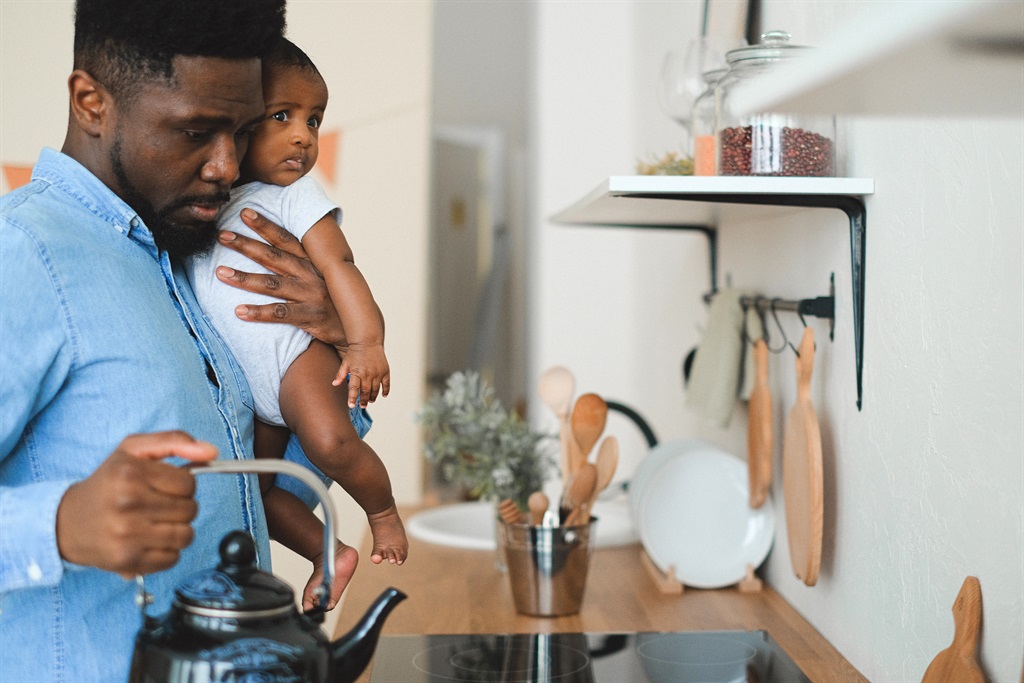
- The 2023 State of the World’s Fathers Report explored the experiences and involvement in caregiving among 12 000 men and women across 17 countries.
- Most of the men involved in the survey said they were doing care work, and they were willing to do more.
- But many barriers stood in their way, including societal norms and financial constraints.
- For more stories, visit the Tech and Trends homepage.
Women perform between three and seven times more caregiving tasks than men in the global south. These include household domestic work and largely focus on caring for children.
Hopefully this is changing.
The 2023 State of the World’s Fathers Report, themed “Centering Care in a World in Crisis”, explored the experiences and involvement in caregiving among 12 000 men and women, many of whom are parents, across 17 countries.
The survey looked at who does the caregiving, how they care, for whom, and what men and women think about care.
I am one of five co-authors of the report, which unveiled a remarkable appreciation for care among respondents.
In an online survey they overwhelmingly associated care with positive terms. “Love” was the most frequently mentioned word across all countries.
Other frequently mentioned words included “help”, “protection”, “attention”, “responsibility”, “health”, “kindness” and “family”.
Most of the men involved in the survey said they were doing care work, and they were willing to do more.
But many barriers stood in their way, including societal norms and financial constraints. While the findings of the research point to changes, it also found that the pace of change is far too slow.
Growing pressure for greater equality
Earlier this year, United Nations member states unanimously designated 29 October as the International Day of Care and Support.
This reflects a growing recognition of the value of care and care work, highlighting the urgent need to distribute caregiving responsibilities more equitably.
Providing care for another person can be a positive experience, fostering empathy and meaningful relationships. However the unequal allocation of caregiving between men and women has long hindered women’s participation in paid work.
In 2018, the International Labour Oganisation estimated 606 million working age women were not able to do so because of unpaid care work. And the heavy burden of care work has had adverse consequences on the physical and mental wellbeing of women.
Moving in the right direction
The State of the World’s Fathers report found that mothers still bore a greater share of responsibilities in care work such as cleaning, physical and emotional childcare, cooking and partner care.
But fathers in countries as diverse as Argentina, Ireland, China, Croatia and Rwanda also reported dedicating significant hours to various unpaid caregiving tasks within the household.
The State of the World’s Fathers study attributed this shift to several factors, including the impact of COVID-19, evolving gender norms related to caregiving, and structural factors such as care systems and parental leave policies.
In 15 countries, between 70% and 90% of men agreed with the statement, “I feel as responsible for care work as my partner.”
Encouragingly, in some nations like South Africa (85%) and Rwanda (93%), men disagreed with the statement, “Boys should not be taught to sew, cook, clean, or take care of their siblings.”
Men who were more emotionally aware and open to seeking emotional support were two to eight times more likely to provide care to a family member than those who were not emotionally aware.
Men who spent more time caring for others experienced greater well-being. Respondents who expressed satisfaction with their involvement in raising their children were 1.5 times more likely to agree with the statement, “I am the person I always wanted to be” and report a sense of gratitude in life than respondents who did not report satisfaction with childrearing.
Everybody needs to chip in
It’s important to recognise that caregiving cannot be dependent solely on individual efforts. Men and women alike require the support of communities, care systems and policies to provide care effectively.
More than half of both mothers and fathers considered political activism for care leave policies a priority. This sentiment varied: 57% of fathers and 66% of mothers in India, and 92% of fathers and 94% of mothers in Rwanda supported this cause.
Women were more likely than men to prioritise care policies along with healthcare and gender equality policies. Concerns about the cost of living were prevalent among both genders, with slightly more women (58%) than men (53%) expressing this worry.
The study found a significant portion of individuals in all countries reported taking action to improve care policies. The majority (74%) discussed the issue with friends and family, while 39% of women and 36% of men signed or shared online petitions.
Additionally, 27% of women and 33% of men attended events calling for improved care policies.
Policymakers have an important role to play in reforms for improved parental leave. Better data enables better policies, so there also need to be more accurate statistics on, for example, how many fathers take parental leave, and how time spent on care work is distributed among men and women.
Making it easier for men to share duties in the house is essential if countries are to thrive.
 Wessel Van Den Berg, Research fellow, Stellenbosch University
Wessel Van Den Berg, Research fellow, Stellenbosch University- This article is republished from The Conversation under a Creative Commons license. Read the original article.




 Publications
Publications
 Partners
Partners
























